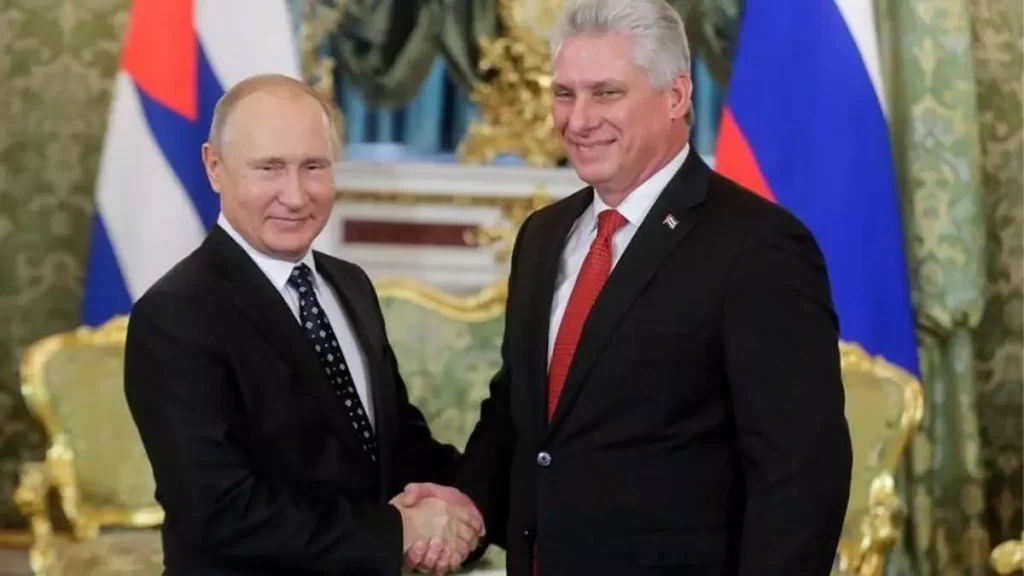
![]() EFE (via 14ymedio), Moscow/Madrid, 11 March 2024 — Russian President Vladimir Putin approved on Monday an amendment to the credit agreements between Russia and Cuba that gives the Island better conditions for the payment and restructuring of its debt. The corresponding document was published this Monday on the legal information portal of the Russian Government.
EFE (via 14ymedio), Moscow/Madrid, 11 March 2024 — Russian President Vladimir Putin approved on Monday an amendment to the credit agreements between Russia and Cuba that gives the Island better conditions for the payment and restructuring of its debt. The corresponding document was published this Monday on the legal information portal of the Russian Government.
The protocols approved by the Russian president refer to the credit agreements for Cuba granted between 2009 and 2019 for the purchase of hydrocarbons.
The debt contracted by Cuba within the framework of the agreements, whose restructuring was approved today, amounts to 277.2 million dollars, according to the Deputy Minister of Finance of Russia, Alexei Sazanov.
The facilities granted to Havana include the possibility of paying the debt in rubles, postponing the payment plan from 2023-2027 to the period 2028-2040, and modifying the calculation of the rates for the delay in payments.
Russia believes that aid to Cuba aimed at guaranteeing its crude oil supply will strengthen Moscow’s political positions in Latin America
Russia believes that aid to Cuba aimed at guaranteeing its supply of crude oil will strengthen Moscow’s political positions in Latin America.
At the moment the Island is going through a deep energy crisis, with simultaneous blackouts in up to 44% of the national territory, which have provoked protests in some provinces.
As numerous specialists have denounced, the Cuban electricity system is in a catastrophic situation, and to solve it it would require an investment of 10 billion dollars and between six and ten years of time.
The lack of foreign currency has also limited Cuba’s ability to import fuel, which affects national energy production.
On March 1, the new fuel prices were established, up 400%, included in the so-called paquetazo [package], which were originally going to enter into force a month earlier, just when its main architect, Alejandro Gil Fernández, was dismissed from his position as Minister of Economy. He is allegedly being investigated by the Government for “serious errors made in the exercise of his functions.”
On the same day as Gil’s dismissal, it was also the last day in Havana for the Russian economic advisor Boris Titov, on his most recent visit to the Island, days after his compatriots Sergey Lavrov and Nikolai Patrushev. Although the official press gave Titov’s arrival the usual pomp, it did not offer news of his stay.
Translated by Regina Anavy
____________
COLLABORATE WITH OUR WORK: The 14ymedio team is committed to practicing serious journalism that reflects Cuba’s reality in all its depth. Thank you for joining us on this long journey. We invite you to continue supporting us by becoming a member of 14ymedio now. Together we can continue transforming journalism in Cuba.
